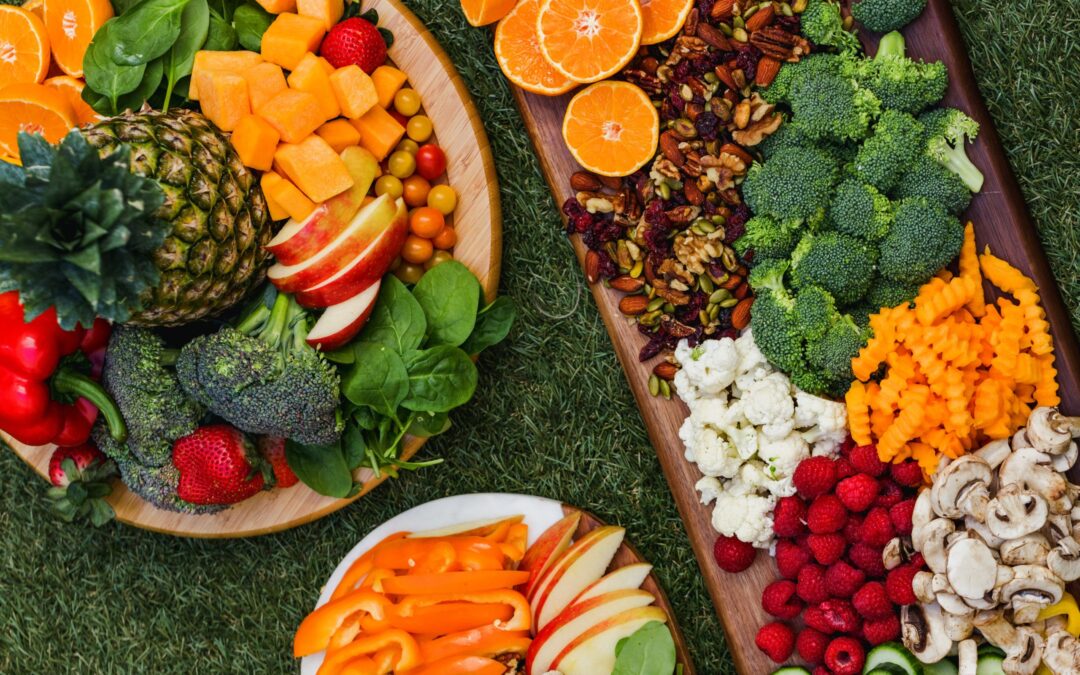Diets do not work. The world is full of misinformation regarding fad diets that simply are not kind to the human body. They all are based in some kind of evidence or theory, but the fact of the matter is that every person is biologically made different; therefore not everyone will be able to eat the same exact thing. This is due to the fact that our genetics all come from different parts of the world, we all have different blood types, and our guts have different micro biomes. Yet, because we are all made similarly, achieving a healthy gut can look similar through each person. Eat for what your body is telling you that it needs.
Our gut micro biomes are established at birth. The bacterium is set in stone when you emerge from the womb. How you are birthed, vaginally or cesarean, how long you are breastfed, and how often you are exposed to antibiotics as an infant impact how your body will function for the rest of your life. This is what makes each of us so different and why we need to focus on bio-individuality in how we eat. So, in order to eat a balanced diet, you need to listen to your body and how it reacts to certain foods. Then based on that information, you can create a sustainable diet that makes you feel energized and healthy. So where do you start?
Your Ayurvedic Constitution
Knowing your body constitution is a great first step. There are three constitutions, or doshas, in Ayurveda. These can tell you how strong your agni, or digestive fire, is and from there you can find what foods you can digest and absorb properly. If you don’t know your dosha, take our quiz here. Knowing your dosha is important because if your agni is not strong enough, you will not break down raw foods and will not absorb as much nutrients. This can lead to numerous accounts of dis-ease.
Food Combining and Nutrition
The three doshas, Vata, Pitta, and Kapha all have different attributes and each of us lives with all three. Vata is airy and dry, Pitta is hot and oily, and Kapha is heavy and moist. We are all born with our own Prakruti, or our original form. However, someone may have an imbalance in one or more of the doshas, therefore creating your vikruti, or current state. Based on your vikruti, eating food that would increase any imbalance will create ama, or toxins, in the body. If your vikruti is Pitta and you have an excess of heat and oil in your body, eating spicy or oily food will elevate these levels and create heartburn. The main cause of this in the western world is improper food combining. When two or more foods are eaten at the same time that require different levels of digestion, agni is overloaded. This inhibits enzymes from breaking down food properly, creating toxins. Poor food combinations create gas, indigestion, putrefaction, and disease.
For example, eating a salad with strawberries and chicken. Fruit and animal proteins require different levels of acid to break them down. This diminishes agni and can create bloating. It is also what we call an incompatible food combination. Some other examples of this are:
- Beans and Cheese
- Bananas and Milk
- Starches (like potatoes) and fat (like sour cream)
- Animal protein (like chicken) and starch (like rice)
- Eggs and dairy/meat
Ayurveda encourages synergistic food combinations like:
- Beans and grains, veggies, nuts, and seeds
- Animal protein and veggies
- Starches (like potatoes and rice) and veggies
- Veggies and anything (except milk and fruit)
- Turmeric and Black pepper
- Green Tea and Lemon
- Kale and Avocado
How Do I Know What to Eat?
You may be thinking, “this is too overwhelming, how will I know what to eat?!” Take things slow. Once you know your constitution, begin by going back to basic eating by removing inflammatory foods like dairy, sugar, and gluten. Removing these foods allow your body to break out of the cycle of an adaptation to a food. For example, if you have eaten dairy products your whole life, your body has adapted to this food, so you would not know how it truly makes you feel until you remove it for a couple weeks, then slowly incorporate it back in.
The Ayurvedic approach to a balanced diet is:
- Cook consciously – enjoy making your food!
- Experiment with spices – spices provide digestive balance
- Add spices and herbs that support your dosha
- Eat mindfully – avoid eating with distractions and think about how you feel before, during, and after you eat
- Chew food thoroughly – facilitates proper digestion
- Drink room temp or warm water
- Make lunch your biggest meal of the day
- Don’t eat till you are over full
- Avoid eating too close to bedtime
- Eat seasonal and organic food
- Make time for movement and exercise as this stimulates digestion
These principles paired with removing inflammatory foods are ground zero for eating a balanced diet. If you have any questions or want more help with discovering your dosha we are available for you! We can help you to remove toxic foods, but also show you ways to include better spices, herbs, fruits and veggies that best fit your bio-individual needs!
5.12.2021
